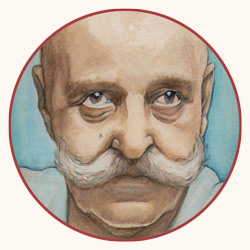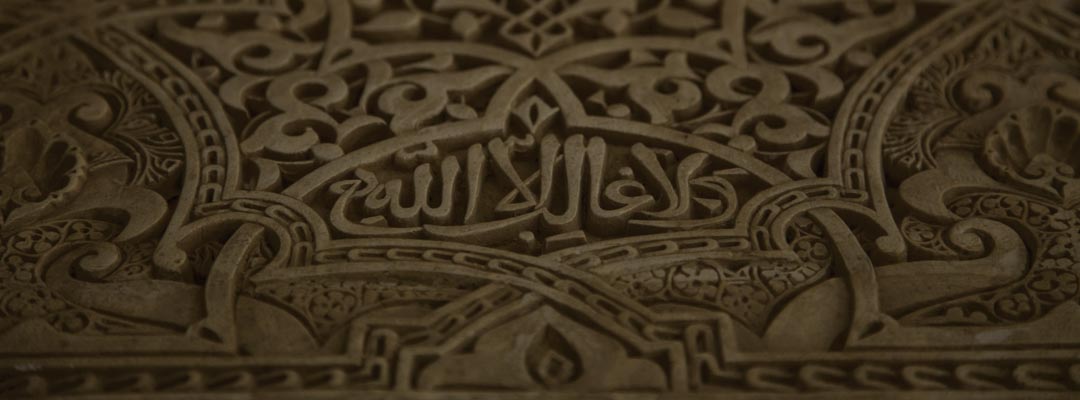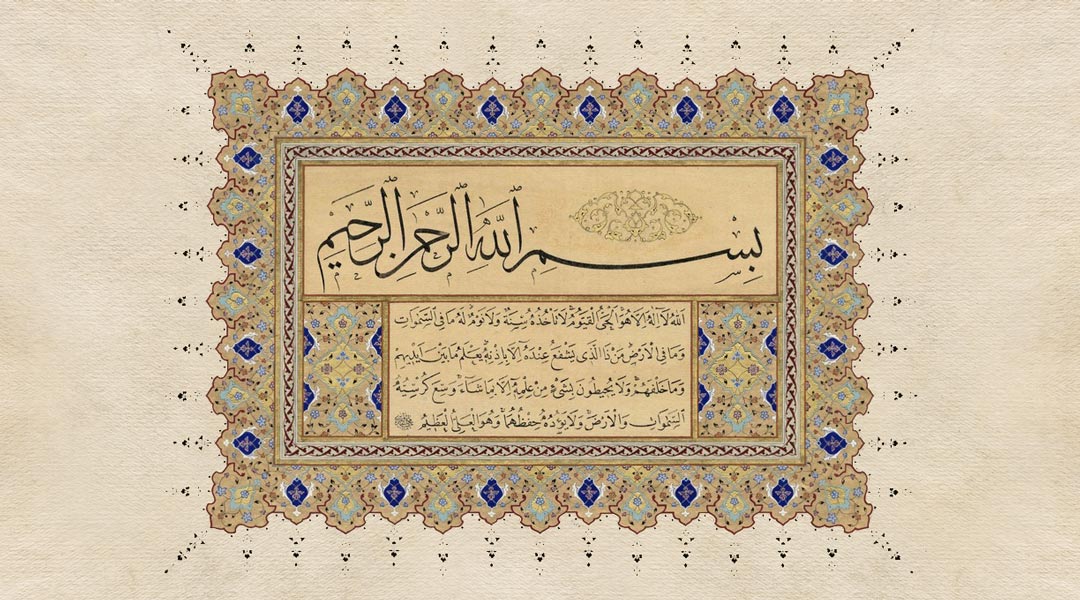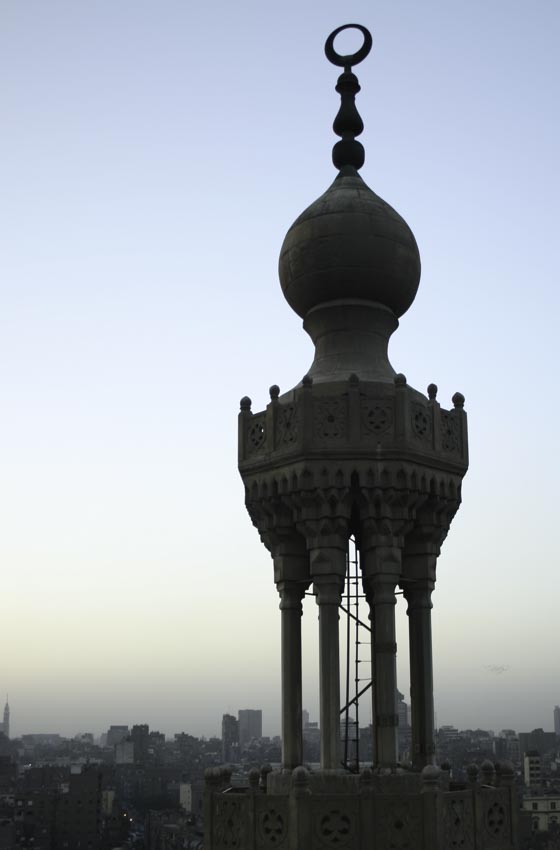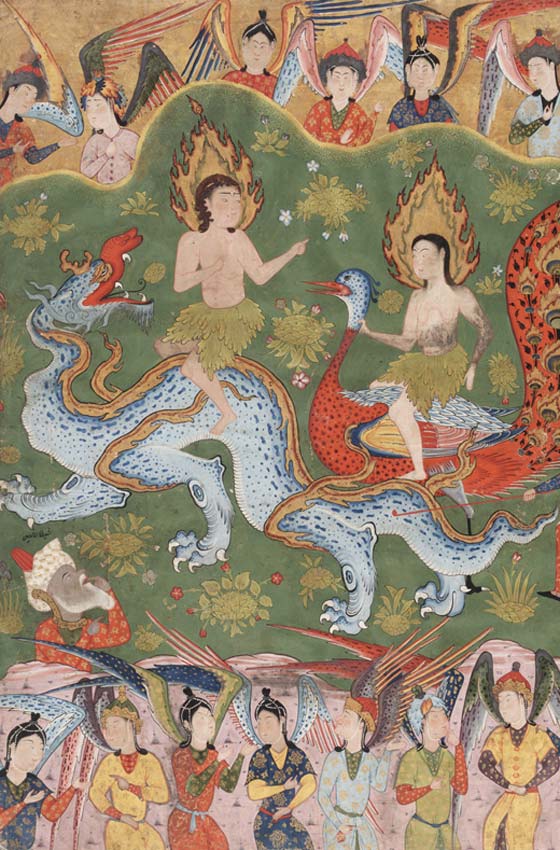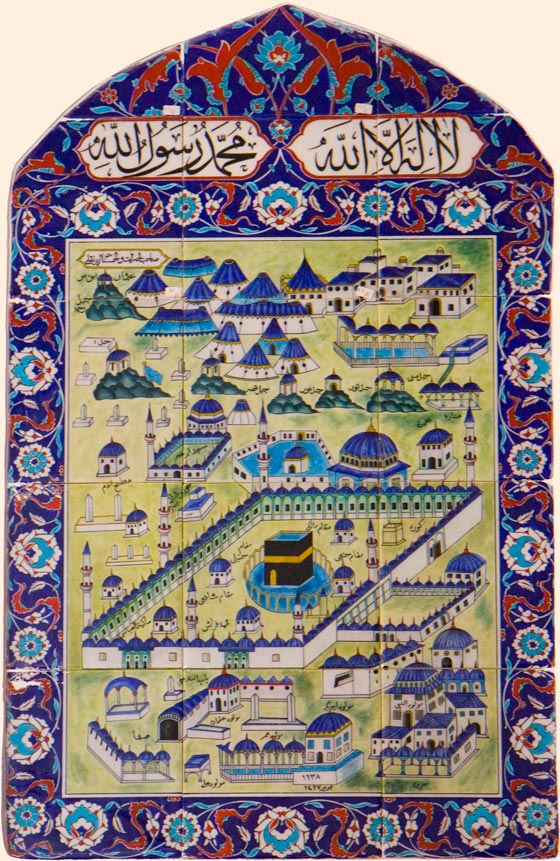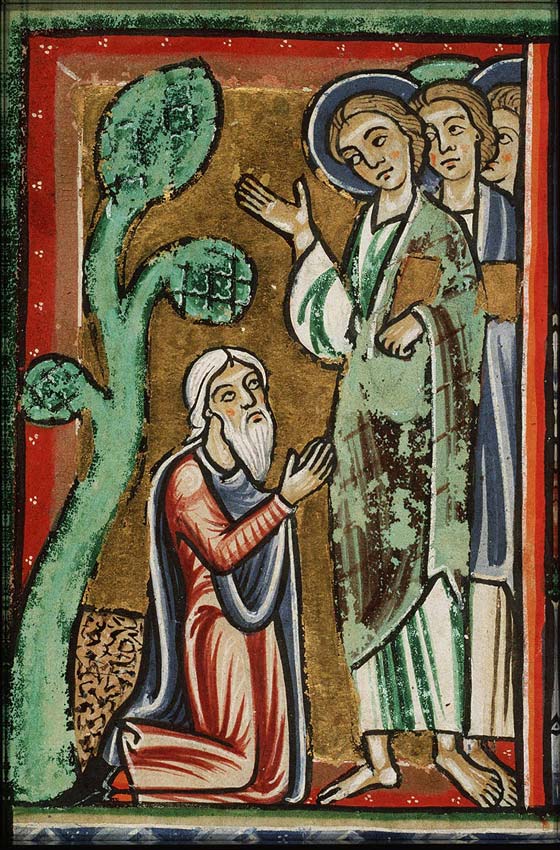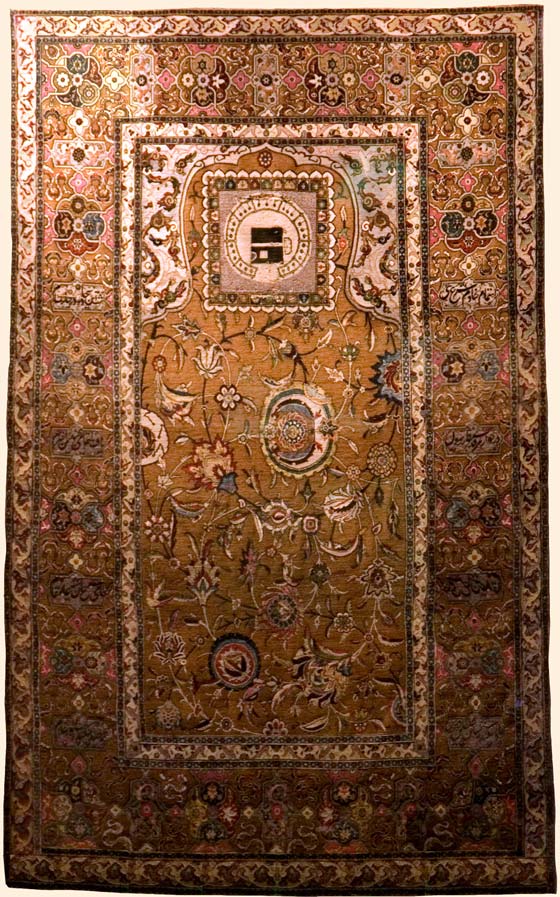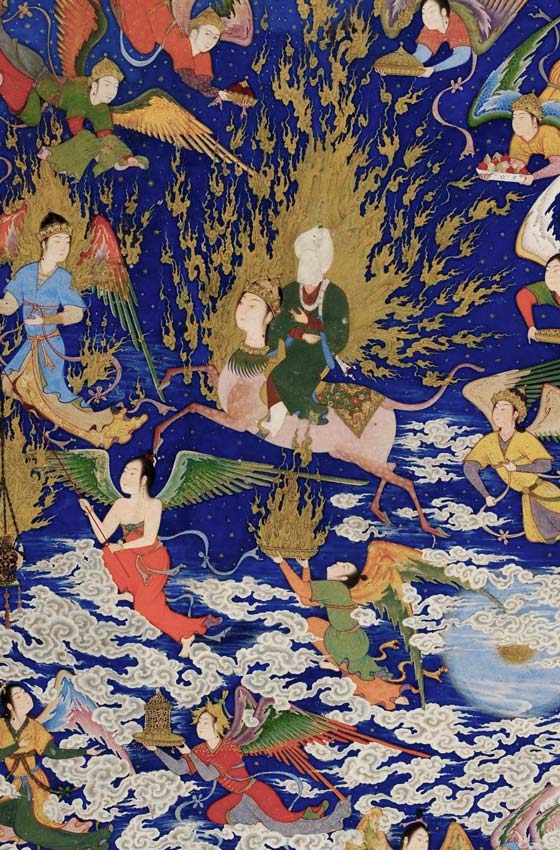Workshop on Sufism
14 – 19 March 2022
BePeriod is gathering for another week-long online workshop, this time in the mystical world of Islam. We will meet online for six consecutive days and explore the esoteric interpretation of Islam, known as Sufism, along with its parallels in the Fourth Way. Each session will last three hours with an intermission, and will conclude with practical exercises to be applied throughout the following day. Students’ verifications from these exercises will lay the ground for each consecutive session.
The message of Islam was revealed to the Prophet Muhammad in the 7th century CE. Tradition has it that Abu Bakr, one of Muhammad’s earliest disciples, received from the Prophet two kinds of knowledge, or two different interpretations of the Koran. With the literal interpretation he formalized the religion of Islam; with the symbolic interpretation he formalized Sufism. In this workshop, we will highlight some of the fundamental principles of Sufism, and seek to put their inner interpretation to practice. Read more below…
1st Session – 14 March | 3pm & 8pm UTC
The Names of God
What the inner meaning has that the outer meaning lacks are scale and relativity. The inner meaning takes objective truths to be true on all scales. Some scales are more immediately relevant to an individual, others are more remote. For example, when texts refer to a community of believers, they are referring both to external practitioners of the same teaching, as well as internal thoughts and emotions supportive of inner work. When they speak of disbelievers, they likewise refer both to external and internal resistance to inner work. And when they speak of God, they refer both to a sovereign intelligence behind the universe, as well as the ruling faculty within the human being.
The opening line of the Koran invokes this ruling faculty: “In the name of Allah, the Compassionate, the Merciful.” Islam associates ninety-nine such names that characterize and invoke God. In this first session, we will study some of these names, examine their inner meaning, and begin practicing how a command might be used to invoke the higher within us.
Minaret of Bab Zuweila | Cairo
All the divine wisdom of the Koran is contained within the opening Surah. And the wisdom of the opening surah is contained within the opening phrase—‘In the name of Allah, the Compassionate, the Merciful’—and the wisdom of the opening phrase is contained within the opening word—‘In’—and the wisdom of that word is contained within its first letter, and the wisdom of that letter is contained within the point beneath the letter.
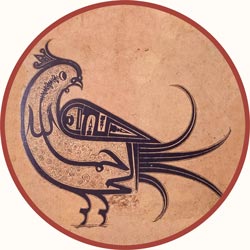
Adam, Eve, and Iblis (Satan)
2nd Session – 15 March | 3pm & 8pm UTC
The Self
The path to God is fraught with resistance. The Koranic retelling of the temptation of Adam and Eve, and their expulsion from God, sheds light onto this resistance by adding an important anecdote missing in the Hebrew Bible. When God creates Adam, He commands the angels to bow down before His new creation. God does so, both to establish Adam as ruler of the world, and to hide the divine breath breathed into him. Iblis (the ‘devil’ in Islam) refuses to bow, and consequently, sees what he was not supposed to see. He also establishes himself as chief opposer to God. Iblis vows to destroy Adam for possessing something he can never have. In other words, the resistance to God is motivated by jealousy.
Sufism views this devil as primarily internal. “The devil, in reality, is a man’s lower self and passion,” clarifies the Sufi Hujwiri. The Sufis lend many useful insights to the motives and methods of this lower self. It cannot be negotiated with and will not relent. On the other hand, its resistance is reliable. We will conclude our second session by incorporating this reliability to our efforts in self-remembering.
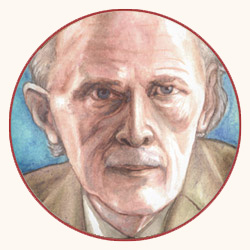
In Sufism, and especially in the teaching of the Khwajagan, exercises alone were never regarded as adequate. All the masters taught the necessity of riyazat and inkisar, which is discipline, austerity and voluntary suffering. Gurdjieff translated these as “conscious labor and intentional suffering.”
3rd Session – 16 March | 3pm & 8pm UTC
The Heart
The Kaaba is considered to be the ‘House of God’; proximity to the Kaaba means proximity to God. Muslims are tasked to perform a pilgrimage to the Kaaba in Mecca at least once in their lifetime. Despite it being the holiest place in Islam, the Kaaba functioned as a house of worship long before Islam. Legend has it that a black rock fell from heaven as an indication for Adam and Even to build an altar. They used it as the corner stone for the black cube-like structure we see today.
The Kaaba serves as an Islamic compass. Muslims pray five times a day facing the Kaaba, from wherever they happen to be situated around the world. The Sufis, however, frequently criticized the infatuation with the external Kaaba, insisting that the heart was the real ‘House of God.’ We will examine the symbolism of orienting oneself correctly before making effort; of finding the third force through an emotional aim before making efforts that can withstand the resistance of the lower self.
The Kaaba | Cesri Kasim Pasa Mosque in Istanbul
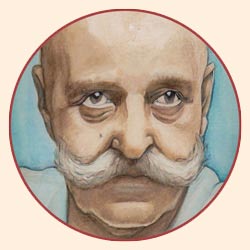
Abraham Bowing Before Angels | 12th c. France
4th Session – 17 March | 3pm & 8pm UTC
Submission
Islam is an Abrahamic religion and Abraham plays a central role in its symbolism. One of the stories that typifies Abraham’s virtues is his ‘submission.’ During an unforeseen visit by God, Abraham bows down before his guest (just as the Muslim prostrates himself in prayer), sacrifices a calf (symbolic of the lower self), and thereby induces God to stay.
The word ‘Islam’ means ‘submission’. The aim of a practitioner is to subjugate the lower to the higher. The heart plays an instrumental role in this inner struggle, because with proper training, it can reflect the will of the higher. Therefore, inner work is a matter of learning the peculiarities of the resistance of the lower self, purifying one’s heart, and using it to invoke one’s Higher Self. Only a practical understanding of these principles can lay the foundation for proper prayer.
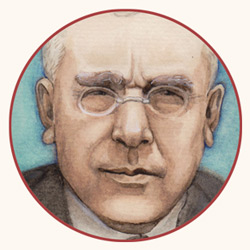
5th Session – 18 March | 3pm & 8pm UTC
Prayer
The preceding sessions have laid the foundation for understanding prayer. The outer meaning of prayer is a supplication to an external divinity. The inner meaning of prayer is an invocation of our Higher Self. To pray, we must thread together the thoughts that invoke the Higher Self, our ability to anticipate the resistance of the lower self, and the noble emotions of the heart that can counteract this resistance. By this token, prayer is synonymous with making effort, but specifically, intelligent and enduring effort. Prayer attempts to exercise our will over thoughts, emotions, and physical impulses.
Each day, Muslims are called to pray five times. We will examine the traditional outer meaning of these prayers, which include recitation, prostration, and repetition, and conclude with aiming to make corresponding internal efforts throughout our day. Students will share the results of their experiences in the final session.
Prayer Mat | Mevlana Museum
As-Sirwani

Muhammad’s Night Journey | Persian miniature
6th Session – 19 March | 3pm & 8pm UTC
The Garden of Paradise
Despite the obvious link to Islam, Sufism claims to be rooted in sources much earlier than Muhammad. Given the time and geography of the appearance of Sufism, its practitioners were well-positioned to benefit from a wide array of ancient cultures, ranging from China and India in the Far East, remnants of Babylon and Zoroaster in Central Asia, Egypt and Judaism in the Middle East, and Christianity in Europe. We find this diverse symbolism woven into the Sufi tapestry.
One such symbol is the Garden. If the human being by nature lives as a cosmos in chaos, then ordering human nature is akin to tending a garden. the gardener submits nature’s chaos to his will. Ala ad-Din Abizi said, “If someone is with Allah, he is actually in the Garden of Paradise.” We will conclude this week-long workshop by sharing our experiences of applying the method of prayer, and tasting the reward of this symbolic Garden.
